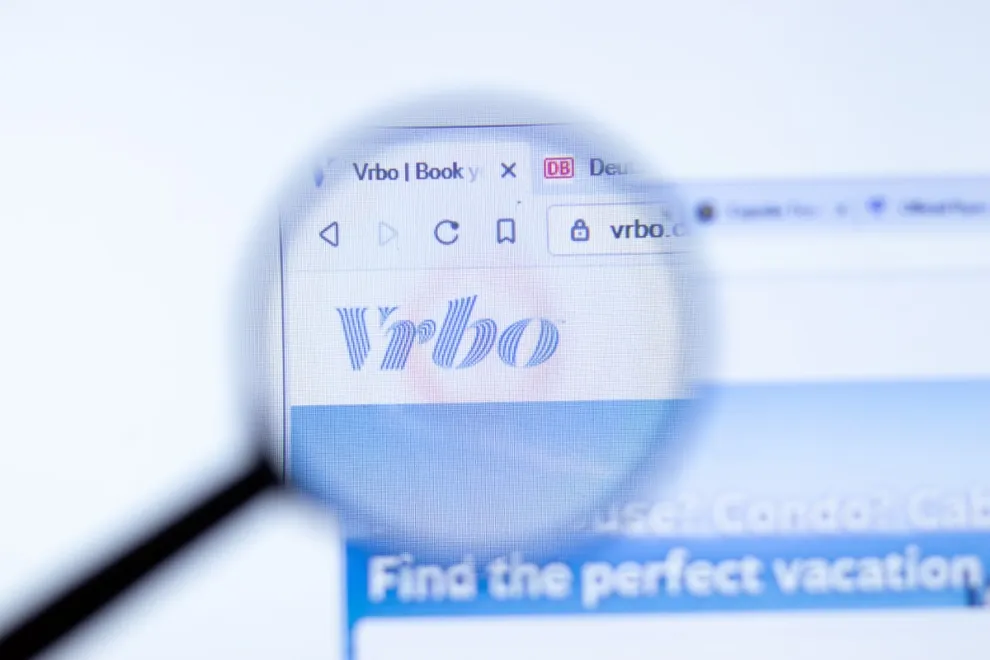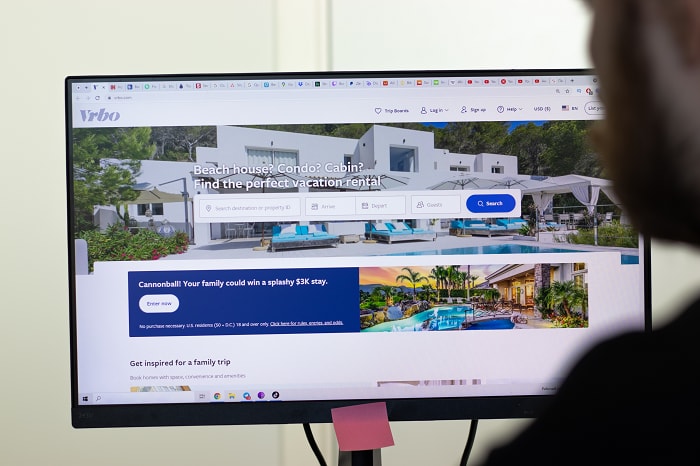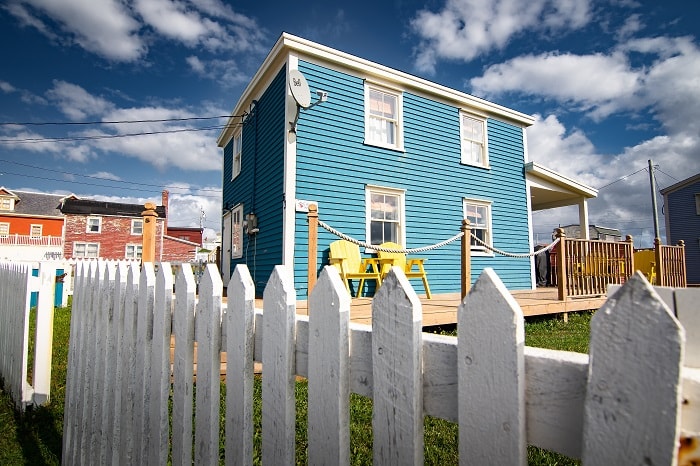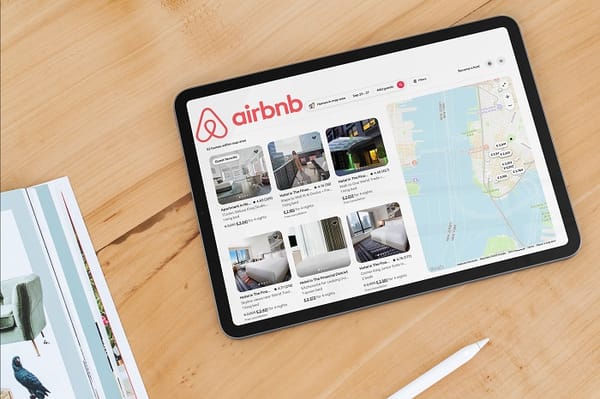Vrbo: Meaning, Background, and FAQs

Looking into Vrbo? You wouldn't be the first, especially if you're exploring the US short-term rental landscape from overseas. As one of the original vacation rental services, Vrbo has built its reputation as a trusted vacation rental company that connects travelers with unique stays across the globe.
Unlike traditional hotels, Vrbo specializes in whole-home rentals, giving travelers space, privacy, and comfort no matter the property type, from mountain cabins to urban apartments to beachfront villas. Whether you’re comparing both Vrbo and other rental sites or weighing Vrbo prices against both Airbnb and hotels, the platform makes it simple to find accommodations that fit your travel style and budget.
The Vrbo website doesn’t just showcase endless vacation properties; it also gives travelers practical tools like filters, reviews, and the ability to save favorites on a personalized Trip Board, making the planning process smooth and enjoyable. Plus, with options for add-ons like trip insurance or travel insurance, guests get extra peace of mind when locking in their reservations (with final costs often excluding taxes until checkout).
All told, Vrbo remains a heavyweight among global vacation rental platforms, delivering authentic stays and strong protections for guests and hosts alike.

Why do they call it Vrbo?
Vrbo is short for Vacation Rentals by Owner – the original moniker the company kicked off with back in 1995. David Clouse founded it in Breckenridge, Colorado, with a pretty straightforward idea: create a space where Vrbo hosts could cut out the middleman and connect directly with travelers hunting for a rental property.
As time rolled on, Vrbo took off, eventually teaming up with HomeAway in 2006 and later getting scooped up by the Expedia Group in 2015. Come 2019, the company decided to give itself a makeover by reintroducing itself simply as Vrbo (and just so you know, it’s pronounced VER-boh rather than spelling out each letter). The rebrand made the name roll off the tongue easier while still tipping its hat to its roots as vacation rentals by owner.
These days, Vrbo stands tall as one of the heavy hitters in vacation rental platforms, with millions of property listings scattered across the globe – everything from cozy mountain cabins to those swanky beachfront vacation properties that make your Instagram followers green with envy.
Background
Vrbo’s been around the block, basically pioneering this whole idea of connecting property owners with travelers who were getting tired of cookie-cutter hotels. The company has grown into quite the beast, now boasting over 2 million rental properties spread across 190+ countries.
Here’s what makes Vrbo stand out from the crowd:
- Entire homes only: No awkward encounters with other guests in shared spaces – just pure privacy.
- Global reach: Whether you’re after mountain cabins, urban apartments, or beachfront vacation properties, they’ve got you covered.
- Guest and host benefits: Vrbo hosts can turn their places into money-makers, while guests get authentic, local stays with more comfort than your standard hotel.
- Expedia Group muscle: Marketing power, customer support, and booking protection that comes with being part of a big family.
Vrbo’s approach is refreshingly straightforward: property managers and owners create a Vrbo listing, travelers browse and book through the Vrbo website, and the platform handles the nitty-gritty like payments, reviews, and customer support. It’s a proper win-win for everyone involved.

What is the difference between Vrbo and Airbnb?
Now here’s where things get interesting. Airbnb and Vrbo are the big players in the vacation rental services game, but they’re not cut from the same cloth. Let me break it down:
- Property Types:
- Airbnb: offers everything – shared rooms, boutique stays, and quirky rental properties like yurts, treehouses, and tiny homes.
- Vrbo: sticks to entire vacation properties, perfect for families, groups, or anyone who values having their own space.
- Service Fees:
- Airbnb: charges both guests (14–16% of booking subtotal) and hosts (~3%).
- Vrbo: only charges guests, with an applicable fee usually ranging from 6–12%, making it slightly easier on the wallet.
- Experiences:
- Airbnb: bundles in Experiences like tours, classes, and activities.
- Vrbo: focuses purely on accommodations.
- Booking Policies: Both allow hosts to set cancellation rules ranging from relaxed to strict.
- Ownership:
- Vrbo: part of the Expedia Group.
- Airbnb: operates independently.
In short: Airbnb is flexible and appeals to budget-conscious or solo travelers, while Vrbo is your go-to for whole-home stays with privacy.
VRBO vs Airbnb vs Booking Direct: What is the Difference?
Right, so you’re weighing your options between Vrbo, Airbnb, or just cutting out the middleman and booking directly. Here’s the lowdown:
- Vrbo:
- Entire homes only.
- Lower service fee than Airbnb.
- Backed by Expedia with the Book with Confidence Guarantee.
- Best for families, groups, and longer stays.
- Airbnb:
- Largest selection of property listings on any rental site.
- Includes shared stays and unique options.
- Higher fees, but a strong community and Experiences.
- Booking Direct:
- Often cheaper since you skip the applicable fee on rental sites.
- Let's you work directly with property managers.
- But with fewer protections if something goes wrong.
Bottom line: Airbnb = variety, Vrbo = privacy, Direct = cheapest but riskier.
Is Vrbo cheaper than hotels?
It depends on your travel style and group size.
- Families and groups: Vrbo often beats hotels. One big rental property can house everyone, and when you split costs, the Vrbo prices are usually cheaper per person. Plus, you get a kitchen and laundry – which means you’re not bleeding cash on eating out or hotel extras.
- Solo or short stays: Hotels can come out ahead since you don’t pay a service fee just to crash for a night or two.
Example: A family of four paying $300 for two hotel rooms could instead book a Vrbo listing at $250 per night with more space and amenities.
Answer: Vrbo often beats hotels for longer stays or group trips, while hotels can be the smarter choice for quick getaways.
Is it safe to rent with Vrbo?
Yes – as long as you book directly through the Vrbo website and stick to the rules. Vrbo’s entire setup as a vacation rental site revolves around trust and protection:
- Book with Confidence Guarantee: Covers your payment if a Vrbo listing doesn’t match what was advertised.
- Secure Payments: Keeps your financial details safe.
- Reviews: Transparency between guests and Vrbo hosts.
- Expedia Group support: Adds credibility and responsive service.
Tips for safety on rental sites like Vrbo:
- Always pay through the platform (never wire money).
- Read reviews carefully.
- Keep communication on the site for a clear record.
Answer: Renting with Vrbo is generally very safe, provided you stick to the official rental site.

Conclusion
Vrbo has carved out its place as one of the top OTAs by sticking to what it does best: connecting travelers with entire vacation properties that feel like home. While Airbnb and Vrbo both offer unique benefits and Booking Direct can sometimes save money, Vrbo strikes a balance with global reach, reasonable service fees, and Expedia-backed protection.
Whether you’re a family planning a getaway or a property manager looking to monetize a home, Vrbo thrives because it makes travel personal, practical, and safe. Nearly three decades later, this vacation rental company still delivers on its original promise: Vacation Rentals by Owner.




![Complete Vacation Rental Email Marketing for Hosts [+ Top Tools]](/content/images/size/w600/2026/01/email-marketing.jpg)


